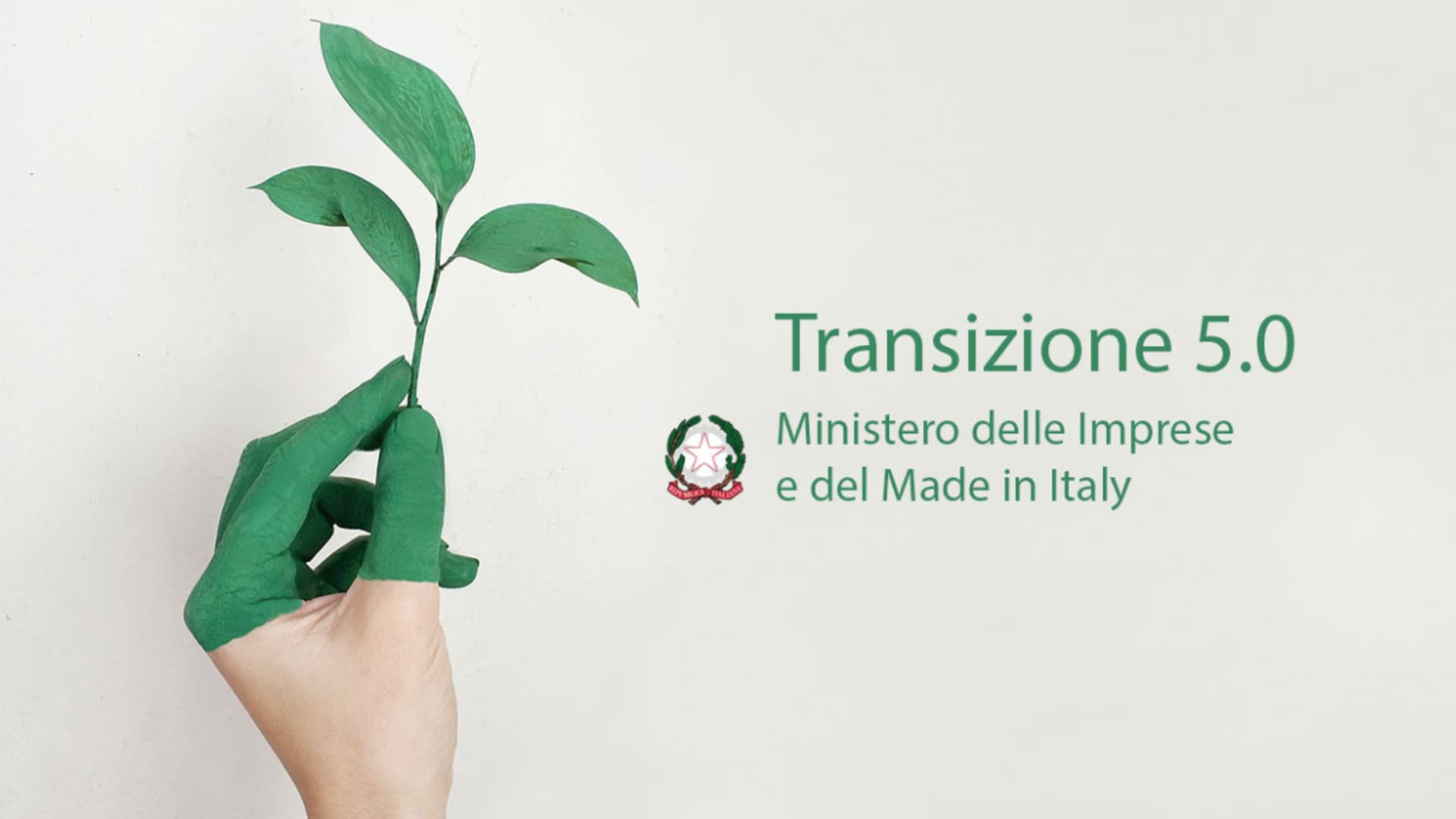
News on the New Transizione 5.0 Decree. The landscape of incentives for businesses in the Transizione 5.0 program is undergoing changes. The Budget Committee of the Chamber of Deputies has outlined a series of adjustments focused mainly on the rules and the application procedure to optimize the effectiveness and accessibility of the incentives.
Introduction of Spending Cap and Simplification of the Application Process
One of the main updates involves the introduction of a spending cap for renewable energy production systems, such as photovoltaic and storage systems. This eligible spending cap, set through an implementing decree, will be calculated in euros per kW for photovoltaic systems and euros per kWh for storage systems. The goal of this measure is to ensure more efficient use of resources and provide greater clarity and predictability for businesses, ensuring a balance between the energy produced and the subsidized costs. In practice, the larger the photovoltaic system, the higher the spending cap allowed.
In addition, the application process has been simplified by eliminating the need for post-investment energy certification. This means businesses no longer need to retroactively certify the completion of their investments, greatly simplifying the incentive request process.
Transizione 5.0 Updates
The Transizione 5.0 plan, outlined in Article 38 of DL 19/2024, continues to incentivize the purchase of 5.0 machinery and software, as well as technologies that enable transformation and energy savings. The tax credit associated with such investments ranges from 35% to 45%, depending on the reduction in energy consumption, with an additional increase for SMEs with lower spending capacity.
Once the implementing decrees are approved, these provisions will apply to eligible expenses incurred from January 1, 2024. Businesses interested in participating must submit their application through a dedicated online platform using the standardized model provided by the GSE (Energy Services Manager), along with the required documentation. The elimination of the post-investment certification significantly simplifies this phase, focusing primarily on pre-investment certification and the detailed description of the investment project and its associated costs.
Non-Approval of Down Payment Requirement
One amendment that sparked interest concerns the introduction of a mandatory 20% down payment on the purchase of equipment and systems for renewable energy production. The failure to approve this amendment is due to the fact that it impacts aspects “external to the content of the proposals being reformulated, and therefore, it will not be put to a vote.” This point remains a topic of discussion, with significant implications for the management of resources and investment procedures.
With the work of the Budget Committee concluded, the text will move to the Chamber, which will begin discussing it on April 15. It will be interesting to see how the situation evolves and whether further modifications will be made during this process. The implementation of the Transizione 5.0 Plan represents a significant step toward energy efficiency and sustainable development. Each update is crucial to fully understanding the implications of this important initiative. While waiting for the Chamber’s discussion, it becomes essential for businesses to start planning investments with the help of consultants who have the necessary expertise and specialized skills.
Ciesse Services for the Transizione 5.0 Plan
In this context, Ciesse is structured to provide comprehensive support to companies involved in the transition to a more sustainable and efficient production model. With its extensive experience, Ciesse has the expertise to:
- Develop and implement customized solutions in every production sector, integrating innovative and interconnected technologies into the company’s production management system;
- Design, install, and manage advanced high-efficiency photovoltaic systems;
- Design and implement energy storage systems;
- Create software and platforms for energy and process monitoring.
Ciesse is indeed an expert developer and supplier of advanced software and platforms for continuous monitoring of energy consumption and self-produced and self-consumed energy. This ensures efficient and effective management, as well as clear data visualization through the use of IoT sensors and Energy Dashboarding.
For the Transizione 5.0 Plan, Ciesse has formed a strategic partnership with Open Consulting, led by Roberto Emma, and Tecnogroup to provide businesses with even more complete and specialized support in achieving their transition goals toward sustainability and energy efficiency.
Open Consulting is a consultancy firm specializing in providing support to businesses in accessing incentives. Tecnogroup is a leader in the design, construction, installation, and maintenance of machinery for the food industry. Both partners can offer businesses complete and personalized support in accessing and utilizing the incentives provided by the decree, helping them optimize their investments and promote environmental sustainability. The close collaboration between these prominent companies and Ciesse will enable businesses to quickly access the incentives and meet the requirements of the program.